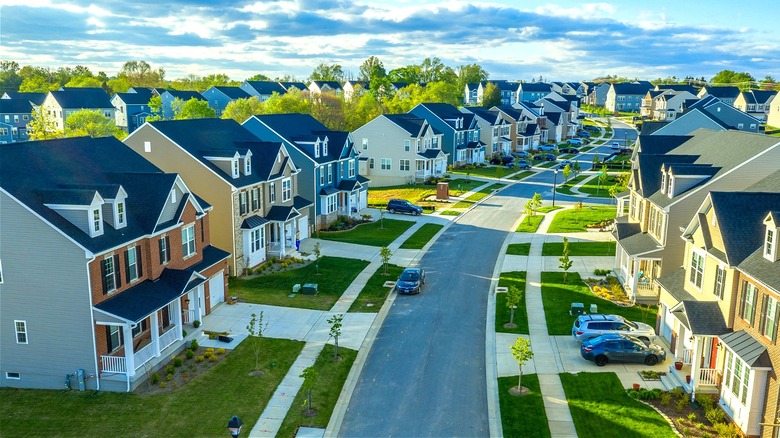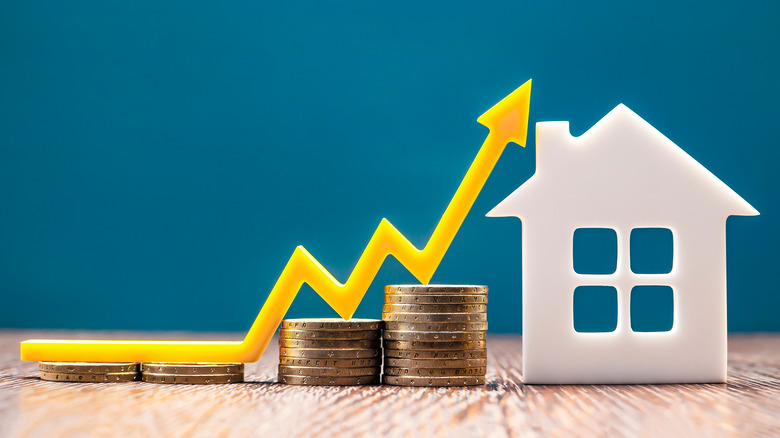How A Housing Market Crash Could Drive Home Prices Down 20% In Some Places
Knowing when to buy a home isn't always easy to do, especially during uncertain times. In recent months, there's been quite a bit of change happening in the United States housing market that lends itself to concern. In 2021, home prices rose 18.8% over the previous year, according to the S&P CoreLogic Case-Shiller U.S. National Home Price Index (via CNN). That year, home values grew in virtually every area of the country, with some areas seeing a 25% increase in value.
A number of factors have changed since then, leading to a significant cooling of the real estate market. For those considering whether or not they should buy a home now or wait, or those thinking about selling and hoping to get the most value possible, understanding the impact of current conditions is key. Some experts believe a housing market crash could happen, and if it does, it could have a significant impact on both buyers and sellers, especially in key regions of the country.
Why experts are worried about home prices
Home values have climbed in recent years, but conditions are flexing in many areas of the country. One factor that indicates a change in the real estate market is the number of people applying for mortgage loans. In early October of 2022, applications fell to the lowest levels they have been in nearly 25 years, according to data from the Mortgage Bankers Association.
Why are consumers not applying for loans? It could be because interest rates on home loans have increased significantly in recent months, thanks to the move by the Federal Reserve to boost the key lending rate to combat inflationary factors. Forbes indicates those increased interest rates have added 15% to monthly mortgage payments, which may price many people out of buying a home. That was, on average, an extra $337 on the typical monthly payment. As a result of higher costs to buy a home, home sales have trickled down in many areas, especially in areas such as San Francisco and New Orleans.
Falling demand means lower prices
As interest rates climb, mortgages become less affordable, but how does this impact the value of homes? In recent years, it's been very much a seller's market, which, according to Rocket Mortgage, means that demand for homes exceeds the supply of available houses for sale. When this occurs, real estate prices rise because sellers can command more for the home as buyers compete to make purchases. While this was occurring, demand is now falling, which could indicate a move to a buyer's market.
In a buyer's market, there are more people who wish to sell a home than there are available buyers. That means homebuyers are likely to see more competition for their purchase, which may mean lower prices. Forbes indicates experts expect home prices could fall as much as 20% in areas where there's less affordability. Key sectors of the market of concern could be Dallas and Austin, Texas, as well as locations like Boise, Idaho, as new construction home builders will have to slash prices to remain competitive. Areas like Seattle, Los Angeles, and San Diego could also be impacted.


